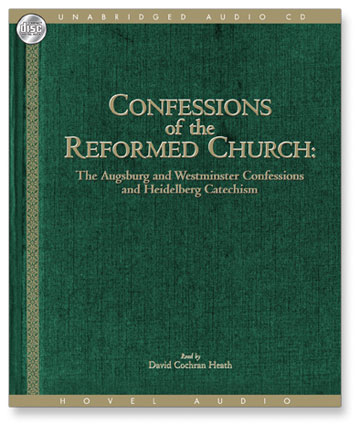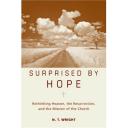Here is a very helpful and interesting interview with Dr. Ed Blum, who edited the Holman Christian Standard Bible. I encourage everyone to read at least some part of it. The information is extremely fascinating.
Below I have re-posted the portion of the interview that dealt with the HCSB’s distinctions from other translations, in particular the ESV.
Please let me know what you think.
Will: In your mind, what makes this translation distinct from other translations? I’m particularly interested in its distinction from the ESV, which seems to be one of its biggest competitors, if I can use that term.
Ed: The ESV comes from the King James tradition. The King James was revised continuously until about 1750. In 1870 they did a major revision of the King James which never became really popular which was called the English Revised Version, and I think popularly known as the Revised Version. It actually came out in 1881. The Americans who worked on it weren’t happy with it, but they had signed an agreement not to publish for 20 years, so they came out in 1901 with the American Standard Version, their revision of the King James tradition. And that stayed in print until the mid 1930s and the National Council of Churches who owned the copyright started on the RSV. And the RSV NT was done in 1946, and the OT was finished in the early 1950s. Everybody thought the NT was fairly decent, but the OT, they had a number of Jewish scholars and they felt that it wasn’t quite what they wanted. So a group of Americans from the Lockman foundation took the old American Standard Version and made the New American Standard Version. That one began as a revision of the King James tradition. And then there was the revision done by Thomas Nelson; they did the NKJV. Then the NASB was revised again in 1995. The English Standard Version took the old RSV and revised about 7% of it. So it’s not a new translation; it’s a revision of the King James tradition. Although they worked on a lot of things, if you really compare them you’ll see that it’s still the King James tradition. They’ve taken King James word order, much of the vocabulary is still the same. The HCSB is a new translation from the original text. For example, the standard Hebrew lexicon that we used is the most recent one. The ESV is a lot closer to the NASB95 and the King James tradition. For example, how often do you use the word “shall�
Will: Not very often.
Ed: Right. Not very often. Usually in a stylized phrase like, you might say to your wife, “Shall we eat out tonight?†But that is sort of stylized. The ESV has the English word “shall†6,389 times. The HCSB has it zero. So for example, “Thou shalt not,†is stylized. “Thou shalt not commit adultery†is traditional. We would say in English today, “Do not commit adultery. “ So the ESV uses outmoded English expressions of language. How often do you use the word “behold�
Will: I try not to.
Ed: Okay, “behold†is in ESV 1,102 times. HCSB has it once. ESV retains the old form “Oh†plus the vocative: “Oh, King, live forever.†“Oh, Lord.†The TNIV has taken almost all the “Oh†plus vocative out. ESV follows the King James and has “Oh†plus the vocative 1,129 times. We have it in the HCSB 10 times, and in the next edition that will come out in 2009 there will be zero. The use of “whom†is declining. When you answer the phone do you say, “Whom do you wish to speak to?†Or do you say, “Who do you want to talk to?†King James has “whom†763 times. NKJ has it 760 times. NASB has it 755 times. ESV has it 740 times. NIV has cut it down to 394. HCSB second edition coming out has it only 142. So, it’s dropping. If you got engaged, how would you introduce your fiancé? Would you say, “She’s my betrothed�
Will: Probably not.
Ed: ESV’s got it 15 times. We have it zero. Here’s an interesting one. You’ll find that very few translations have this correct. ESV, NIV, a lot of them use the expression “strong drink.†Most people think “strong drink†is whiskey or rum or gin or something like that, but distillation was not discovered until the 9th century ad. So our translation correctly translates it “beer.†ESV continues to use the old terms like “leper.†But then they add a footnote every time they use it, and they have the same footnote 20 times. There’s a confusion in popular thinking about Hansen’s disease. Whatever it was in the Bible period—it grew on the walls and grew on clothing and so on—was not Hansen’s disease. ESV uses old terms like “tithe.†What is a tithe in your mind?
Will: Ten percent.
Ed: Ten percent. And “tithe†is just an old English word meaning “tenth.†So why not use “a tenth� We have several special features that help the average Bible reader. We have these bullet notes. For example, ESV has the same footnote in the book of Revelation 15 times. We would just have a bullet note that takes you to that section in the reverse.



